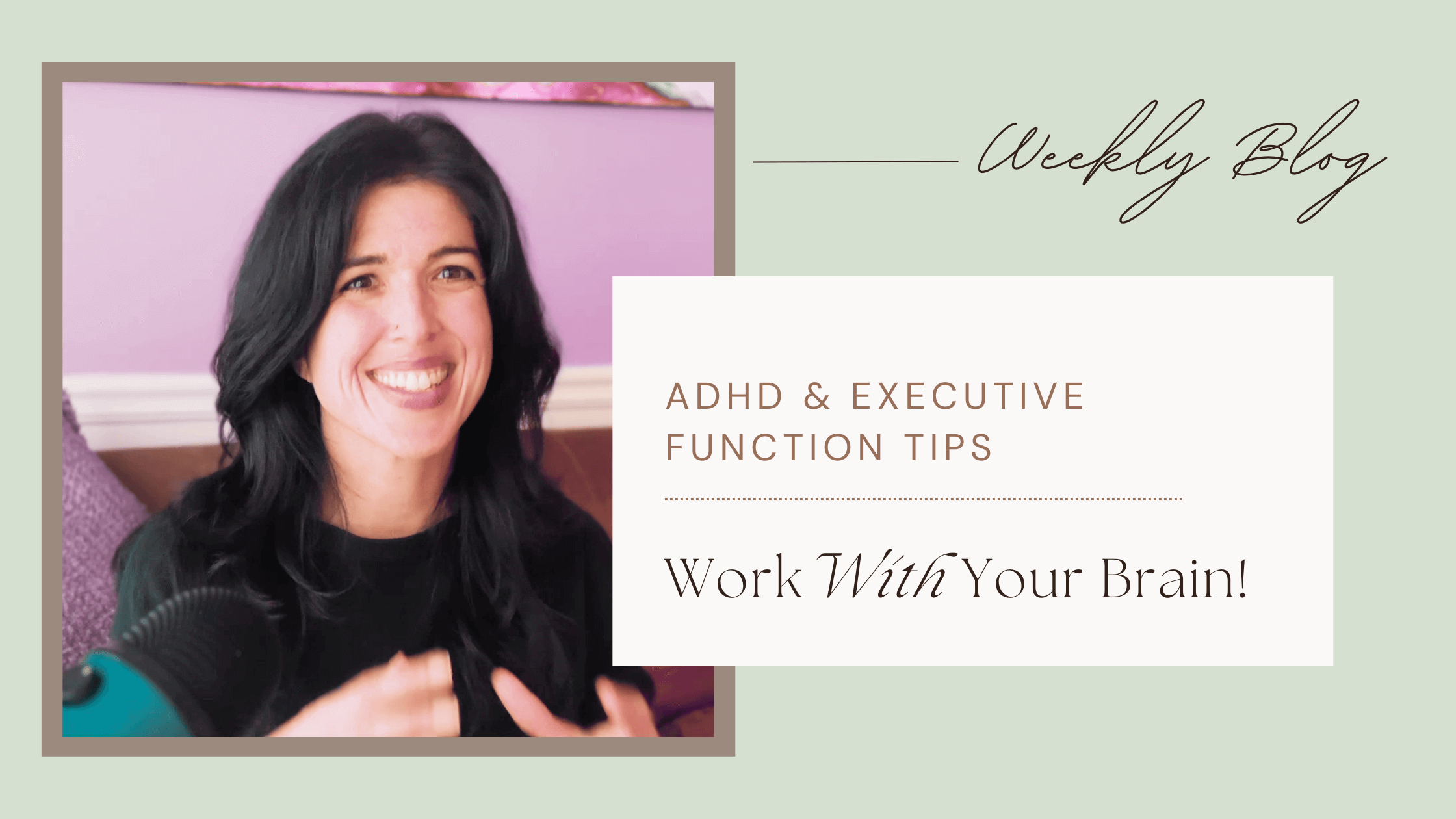
Today we’re talking about self‑care: not the spa kind, but the real, day‑to‑day care of your body, space, and routines. Hygiene, cleanup, grooming; these can feel overwhelming, and struggles in this area often carry shame. But this is not a moral issue. It’s a function issue. We can problem-solve the executive function, sensory, and thought obstacles that make this hard. In this episode, I’ll share 3 practical tips to help you move through the friction of self-care with more ease, compassion, and real-world supports.
You know those days when brushing your teeth feels like climbing a mountain? Or your bathroom, your clothes, your space all feel like obstacle courses? If you have ADHD, self-care and hygiene can carry real challenges and be layered with shame.
In this blog, I’m walking you through 3 no-shame, functional tips to help you care for your body and environment in a way that respects your brain.

1. Start with Executive Functioning Awareness
Self-care isn’t just about motivation—it’s about skills like sequencing, prioritizing, decision-making, and transitions.
- Example: deciding when to shower (before work? after gym?) becomes a whole planning task.
- Habits help reduce that daily friction—but too many habits can feel oppressive.
- Also, your space plays a role: if things aren’t organized or accessible, the thought of retrieving what you need can drain your brain before you even begin.
Recognizing these functional barriers is step one!

2. Reduce Friction by Respecting Sensory & Environmental Needs
Your senses matter. What feels tolerable to others may feel overwhelming to you.
- Maybe mint toothpaste feels burning—try gentler flavors.
- Maybe the bathroom is too cold after showering—consider a space heater or quick robe.
- Organize your space so that needed items are easy to reach, creating flow.
- Recognize that transitions (switching tasks) cost you energy—use external cues or announcements to help your brain jump.
- Give yourself permission to do things differently—fold clothes quickly, roll them, keep toothbrush stations elsewhere if it helps.
These tweaks aren’t "wastes of time", they’re smart adaptations that can make a difference if self care is tricky for you.

3. Believe, Experiment & Compassionately Problem Solve
This one is the heart of my approach: believe yourself. If something is hard, don’t pretend it isn’t or shame yourself because it "shouldn't be".
- Be curious: what is exactly hard? Where’s the friction?
- Experiment: it's ok to pick “wrong” or “imperfect” ways of doing things.
- Look at the point of action (the moment you struggle most) and ask what you can change there.
Offer yourself compassion: this isn’t moral. It’s functional. Over time, you can adjust, refine, and find what works for your brain.
Conclusion
Struggling with self-care isn't a moral issue, it's a function issue. When you treat hygiene and body care as functional puzzles, not moral tests, you free yourself to problem-solve, adapt, and build routines that respect you.
Need more support ?
I can help.


















0 Comments